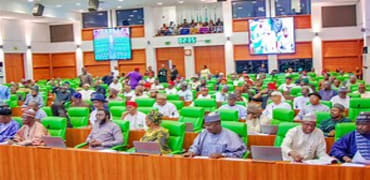Now That The Chinese Bilateral Talks Are over, I Hope President Tinubu Leaves Beijing With Big FDI Guarantees. He Should Now Turn His Attention To The UK And Seek Investment In The Shipping Sector As Atonement For Colonialism
Now that the Chinese bilateral talks are over, I hope President Tinubu leaves Beijing with big FDI guarantees. He should now turn his attention to the UK and seek investment in the shipping sector as atonement for colonialism
Ayo Akinfe
[1] I for one have always regarded the 1851 capture of Lagos as the date when the British colonisation of Nigeria began. That was the year when John Beecroft, the British consul of the Bights of Benin and Biafra, lined up his naval gunboats off the coast of Lagos and forced Oba Akintoye to sign a treaty of protection handing over the city to Britain
[2] Oba Akintoye’s son Dosunmu resisted the terms of the treaty but under the threat to unleash violence on Lagos by Commander Bedingfield, Dosunmu relented and signed the Lagos Treaty of Cession on 6 August 1861. Subsequently, Lagos was declared a colony on 5 March 1862
[3] From then onwards, conquering the rest of Nigeria was easy. Lugard’s troops marched down from the north after sacking Sokoto in 1902 and following the sacking of Benin in 1897, there was no empire strong enough to resist British rule. Frederick Lugard created the two protectorates of northern and southern Nigeria in 1906 and then went on to amalgamate them into into one giant nation called Nigeria in 1914
[4] We now know that Lugard was so ruthless in creating this African giant because he was keen to fight off French interest from the west in Dahomey and German interest in the east from Cameroon. Having already subdued Gambia, Sierra Leone and Ghana, Lugard wanted a powerhouse in West Africa that would serve as a beacon. A kind of African India or Jewel in the Crown of the British African empire
[5] If you need any evidence of this, you just need to see how Britain used Nigerian troops to seize western Cameroon from Germany in 1914 during World War One. At the outset of World War Two, it was also Nigerian troops who formed the bulk of the West African Frontier Force
[6] Now, common sense would have dictated that Britain equipped this its prize colony economically, kind of like the way the Japanese invested millions in Manchuria when they captured it from China or the way the US invested in the Cuban hospitality industry. I am perplexed as to why Britain showed no interest in securing Nigeria economically. I cannot get my head round how Britain brought us Christianity but failed to bring their most renown skill - shipmaking!
[7] In 1851, Britain was the world’s leading maritime power and should have built at least two shipyards along the Nigerian coast. In 1851 they should have built one in Lagos and then one should have opened in Calabar when it became the capital of the Protectorate of Southern Nigeria in 1906. Not one canoe or propeller was even built in Nigeria, which for me is totally unacceptable. That is racism at its worst. What they were effectively saying is we were ignorant primates not worthy of sharing technology with
[8] Do you know that more than 3m tonnes of shipping were built in the British shipyards on the River Wear and other north east yards alone between 1914 and 1918? At the time, the Tyne boasted of 19 shipyards of various sizes, with five capable of handling Dreadnoughts, the new breed of heavy battleship. In addition to merchant ships, Tyne alone managed to build one third of the world’s battleships, 19% of its cruisers, 28% of its destroyers, 29% of naval escorts and 14% of the world’s submarines during World War One
[9] In 2006, British shipbuilding giant Swan Hunter ceased vessel construction on Tyneside but continues to provide design engineering services up until today. Were we not asleep at the time, in 2006, we should have asked them to relocate their shipyard to Calabar. At one stage, Calabar was the world’s largest slave port, so I think the British actually owe us one. If Calabar can ship British slaves, it can also make British ships
[10] I want to see President Tinubu demand reparations in the form of British investment and technology transfer. Boris Johnson once said Britain cannot reverse its history. This is very true but Britain can atone for her past sins by investing in the future. For me, the opening of a British shipyard in Calabar should be the minimal basis for continued Nigeria-Britain economic cooperation
Ayoakinfe@gmail.com


















